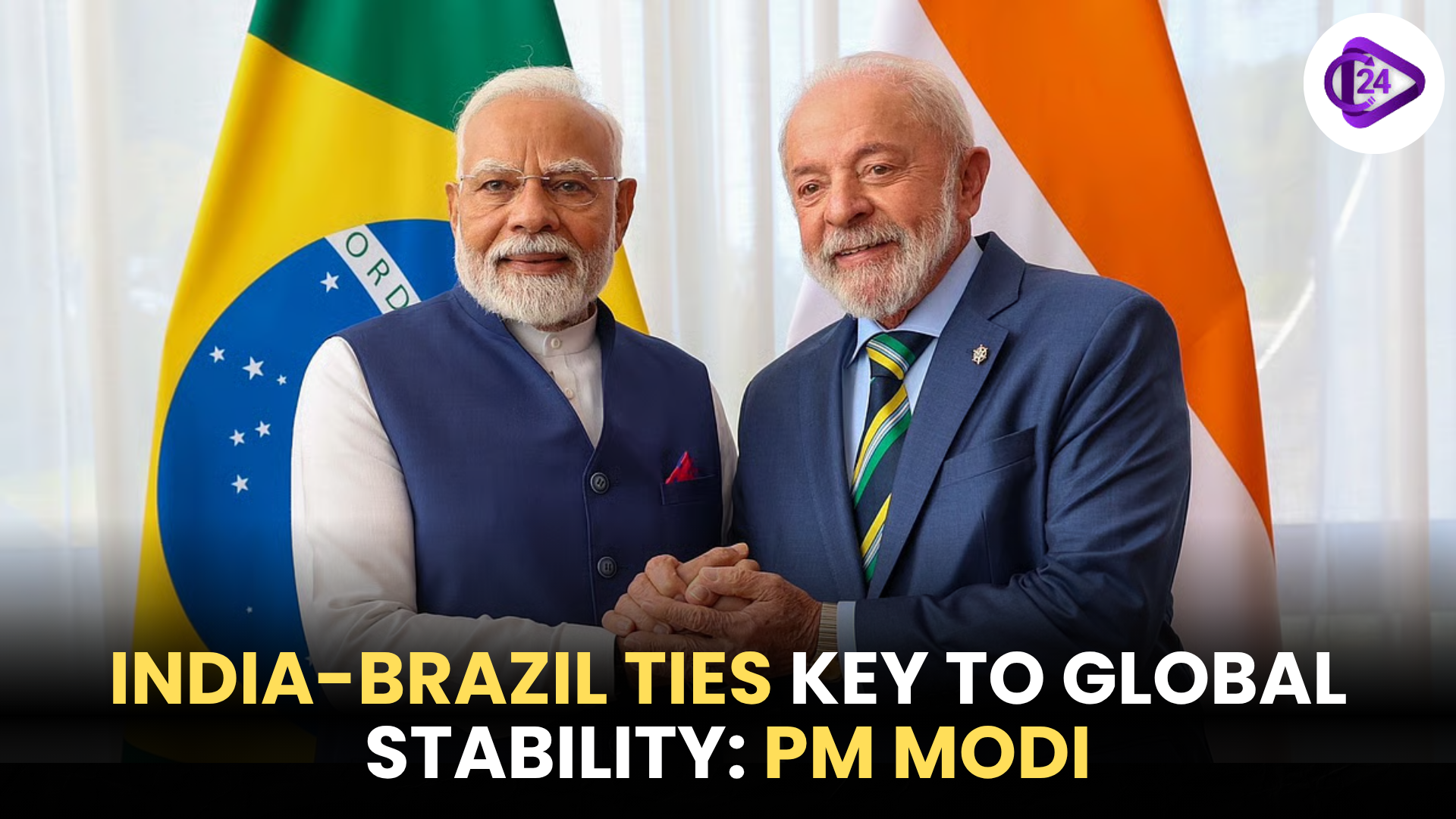
On his visit to Brasilia, Prime Minister Narendra Modi pointed to the significance of the India-Brazil partnership. He pointed out the mutual desire of the two countries to solve the worldwide problems with the help of talks and diplomacy. The strategic alliance, especially in protection of the interests of the Global South is an important element in enhancing world stability. These words came along after a bilateral meeting in Brasilia between Modi and Brazilian President Lula da Silva, which further enhanced the relationship between the two big democracies. An amount of six major agreements was signed as a result of this visit, and it is another chapter to cooperation.
Context
-
Prime minister Modi emphasized the point of strategic essence to India Brazil partnership noting that it would help the world solve complex problems diplomatically.
-
Both countries voted to improve relations, and new six agreements were made in such significant spheres as energy, terrorism as well as trade.
Details:
-
Strategic Partnership:
-
Modi mentioned that the India-Brazil interaction is one of the main guardrails of world stability.
-
Although cooperation is characterized as essential to the Global South, it is also in the interest of the entire world.
-
-
Diplomacy and Dialogue:
-
Both countries affirmed that peaceful resolution of problems experienced in the world should be adopted by embracing dialogue and diplomacy.
-
There is no tolerance and no double standards to terrorism, and it is an issue of close cooperation.
-
-
Diplomatic Honors:
-
President Lula awarded Prime Minister Modi the Grand Collar (Brazilian highest state order), the National Order of the Southern Cross.
-
-
Target in Bilateral Trade:
-
Another major move towards the development of economic ties was the declaration by both sides of the desire to develop two-way trade to the level of $20 billion within five years.
-
-
Six Main Agreements:
-
Drawn agreements incorporated such spheres as renewable energy, war on terrorism, intellectual property, agriculture, and classified information protection.
-
Pay attention to collaborating in the domain of defense industries and implement UPI (Unified Payments Interface) in Brazil.
-
Key areas of cooperation
Institutional-Level Engagements:
-
Strategic Dialogue: The central body involving the role of National Security Advisors in trying to have common interests regarding worldly and local interests.
-
India-Brazil Business Leaders Forum: It is concerned with economic cooperation, investment and trade.
-
Trade Monitoring Mechanism (TMM): Trade related issues are trailed and solved.
-
Joint Defence Commission: This body which allows cooperation in the field of defence in terms of joint exercises and sharing of intelligence.
-
Joint Committee on Science & Technology: Advocates research and exchange of knowledge.
Trade and Investment:
-
Bilateral trade was USD 15.2 billion in 2022 and India was the 5 th largest trading partner of Brazil.
-
India and Brazil have put money in the motor industry, IT, energy, biofuel, and footwear.
-
MERCOSUR PTA: In 2004, India signed a Preferential Trade Agreement with MERCOSUR (Brazil, Argentina, Uruguay and Paraguay).
-
The main exports are agrochemicals, auto parts, and synthetic yarn; meanwhile, the following are some of the imports: crude oil, gold, and sugar.
Defense and Security Cooperation:
-
In 2003 signed a defense cooperation agreement, and institutionalized liaison with Joint Defence Committees.
-
Cyber Security MoU: On the one hand, with Brazil, signed in 2020 with its counterpart.
Cooperation in Science and Technology:
-
Cooperation in space, launching of Amazonia-1 satellite.
-
Ayurveda and Yoga have been recognised in the health policy of Brazil, and in 2020 an MoU on Traditional Medicine was signed.
Energy Security and Biofuel Cooperation:
-
Indian oil corporation and the CNPEM of Brazil entered into a MoU in 2020 to establish a research institution on bioenergy.
-
Technological backing of Brazil in the ethanol blending program of India that would see India achieve 15.83 % ethanol blending, by 2024 and 20 % by 2025.
Obstacles on India-Brazil Relationships:
-
Trade deficit and competition:
-
India is always faced by a trade deficit since it relies on Brazilian agricultural products, which are soybeans and sugar.
-
The policies of prevention such as Tariffs and Subsidies obstruct bilateral trade.
-
-
Restrained People-to-People contact:
-
The bilateral ties are also constrained by the fact that there is a deficiency of adequate cultural, business, and education interactions amongst the two nations.
-
-
China influence:
-
China has been Brazil's largest trading partner and this might influence the relations between India and Brazil (particularly in terms of trade and investment).
-
Cooperation Enhancing Strategies:
-
Economic Cooperation:
-
Varietize trade by trading in greater value added product services and technology. Attention should be paid to the favorable investment atmosphere establishment with the help of joint ventures and agreements.
-
Make infrastructure investments such as the transportation system or logistics to enhance connectivity and increase bilateral trade.
-
-
People to People Exchange:
-
Encourage cultural diplomacy, student-exchange and tourism as a way of enhancing understanding between the two people and likewise harnessing people-to-people linkages.
-
Encourage education partnership and provide direct flight connectivity, so it will not be hard to travel.
-
-
Enhance Strategic Alliance:
-
Increase defense coordination by conducting combined military-training, technology-sharing, and intelligence-sharing.
-
Collaborate on international platforms such as the UN, G20, and the World Trade Organization in order to pursue mutual goals in international governance, climate change, and safety.
-
-
Cross-Technology and Innovation:
-
Invest in research and development on renewable energy, biotechnology and IT to achieve new technological innovation.
-
There should be more promotion of the skill development programs and the training of the workforce in both countries to make the workforce more competitive.
-
-
Cultivate Sustainable Development:
-
Reinforce collaboration on climate change activity, especially on the front of biofuels and renewable energy. A partnership between India and Brazil may improve sustainability and attain the requirements of the Global South.
-
Collaborate in encouraging policies which are aimed at both environmental protection and economic growth, particularly in areas such as agriculture, biofuels and renewable energy.
-
Conclusion
India- Brazil collaboration could be referred to as the beacon of international relations since it is a relationship that focuses more on dialogue, joint work, and shared values. The enhancement of relations in various fields, including defense and the power sector as well as renewable energy, prepares a path towards a balanced and stable world order, in which the two countries contribute significantly to the future of the Global South.



 Donald Trump Receives First FIFA Peace Prize
Donald Trump Receives First FIFA Peace Prize International Civil Aviation Day 2025 – Everything About the History, Theme and Its Importance
International Civil Aviation Day 2025 – Everything About the History, Theme and Its Importance Netflix to buy Warner Bros Discovery's Studios, Streaming Unit for $72 Billion
Netflix to buy Warner Bros Discovery's Studios, Streaming Unit for $72 Billion Russia to Join India-led International Big Cat Alliance
Russia to Join India-led International Big Cat Alliance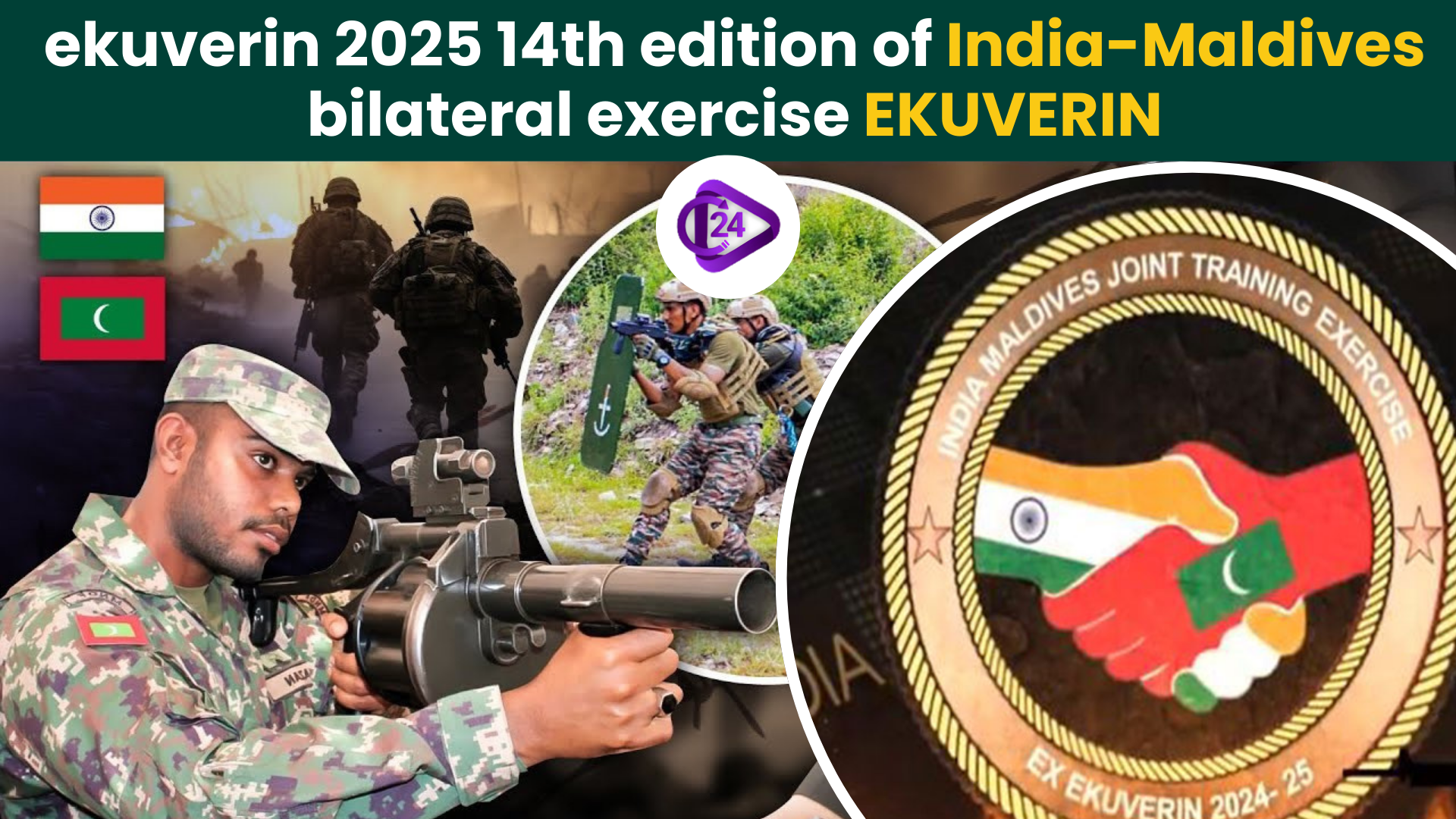 India, Maldives Begin 14th Edition of Exercise Ekuverin 2025
India, Maldives Begin 14th Edition of Exercise Ekuverin 2025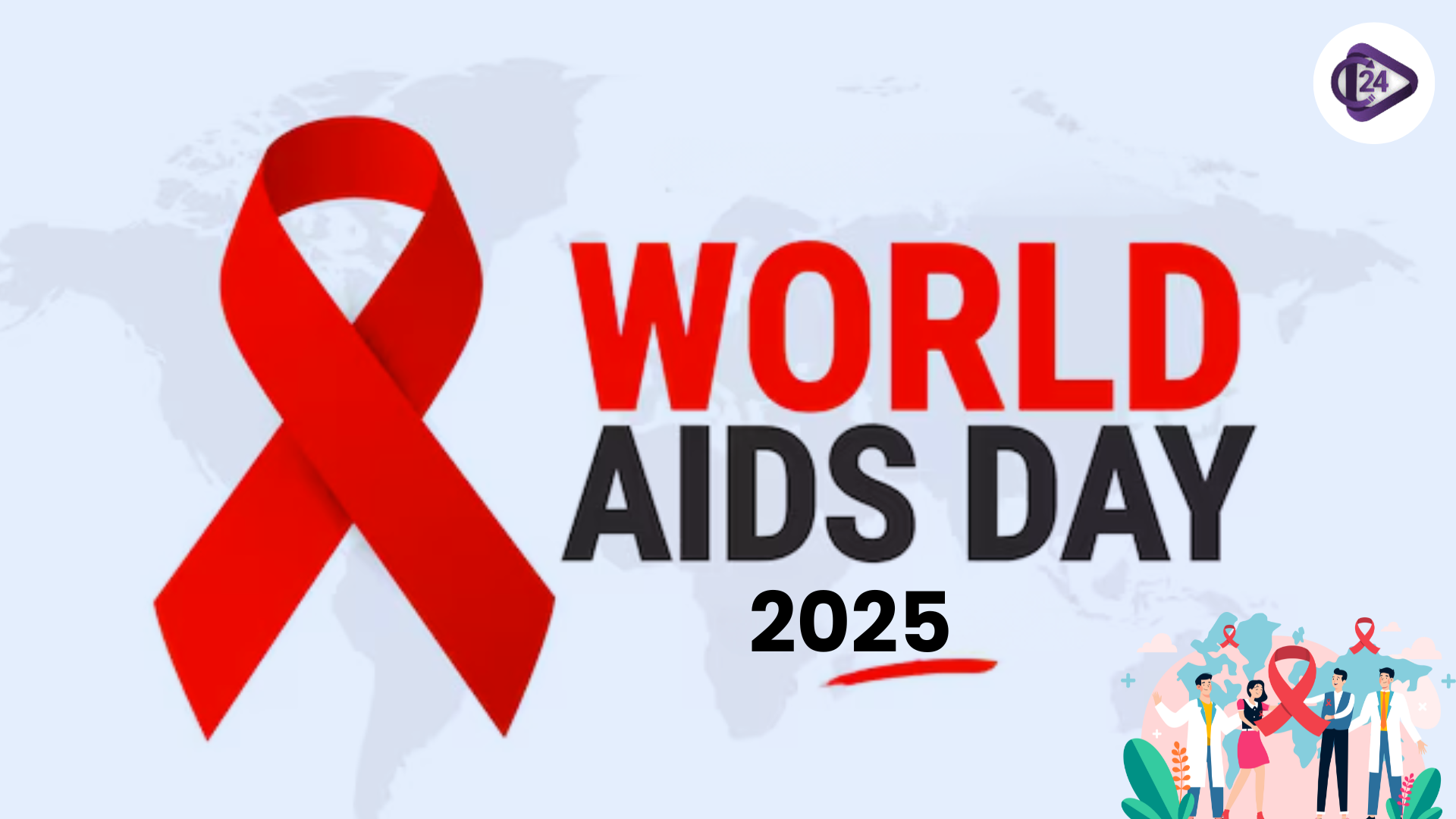 World AIDS Day 2025
World AIDS Day 2025 Riyadh Metro Breaks Guinness World Record as Longest Driverless Metro Network
Riyadh Metro Breaks Guinness World Record as Longest Driverless Metro Network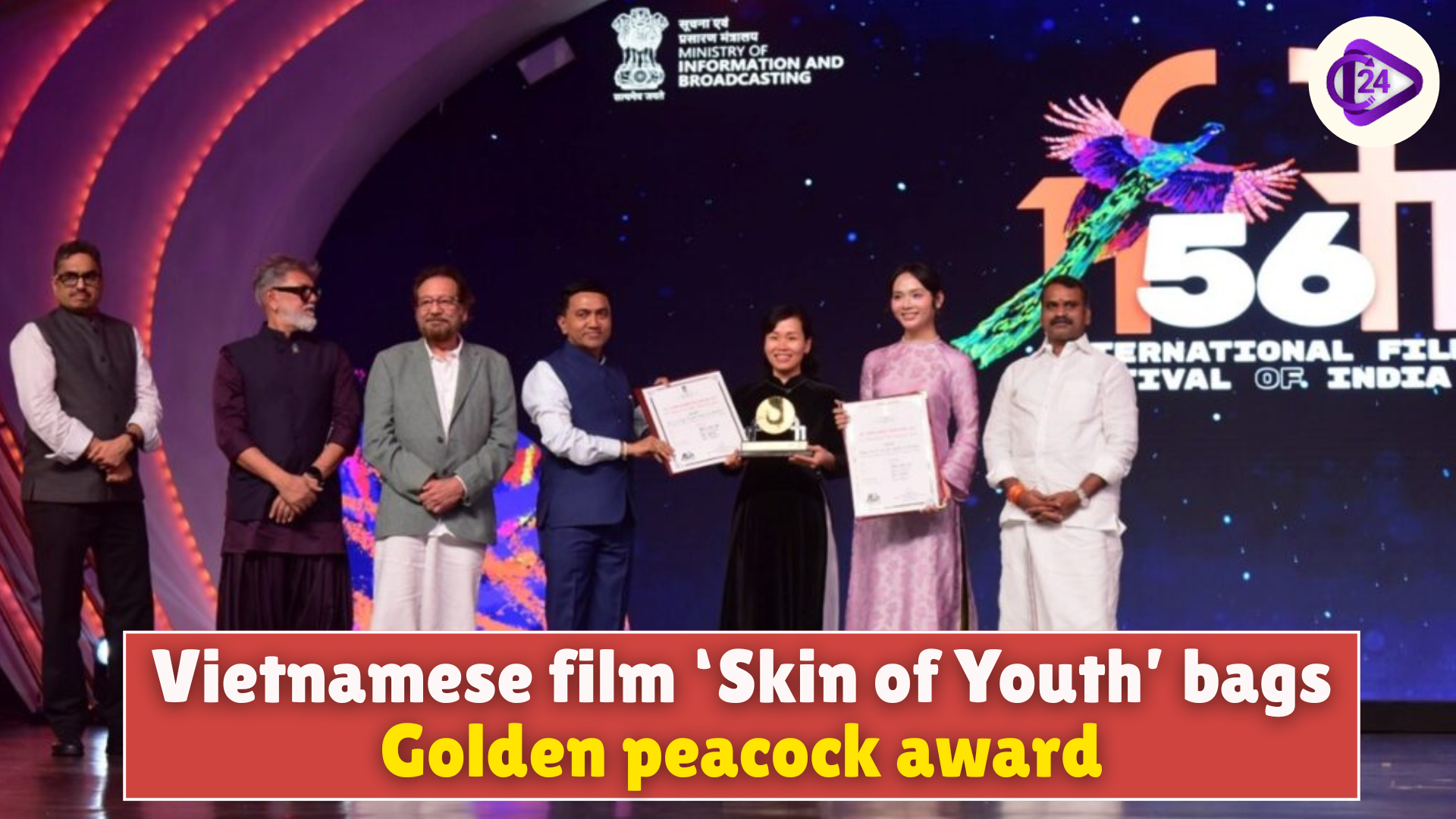 Vietnamese Film ‘Skin of Youth’ Bags Golden Peacock Award
Vietnamese Film ‘Skin of Youth’ Bags Golden Peacock Award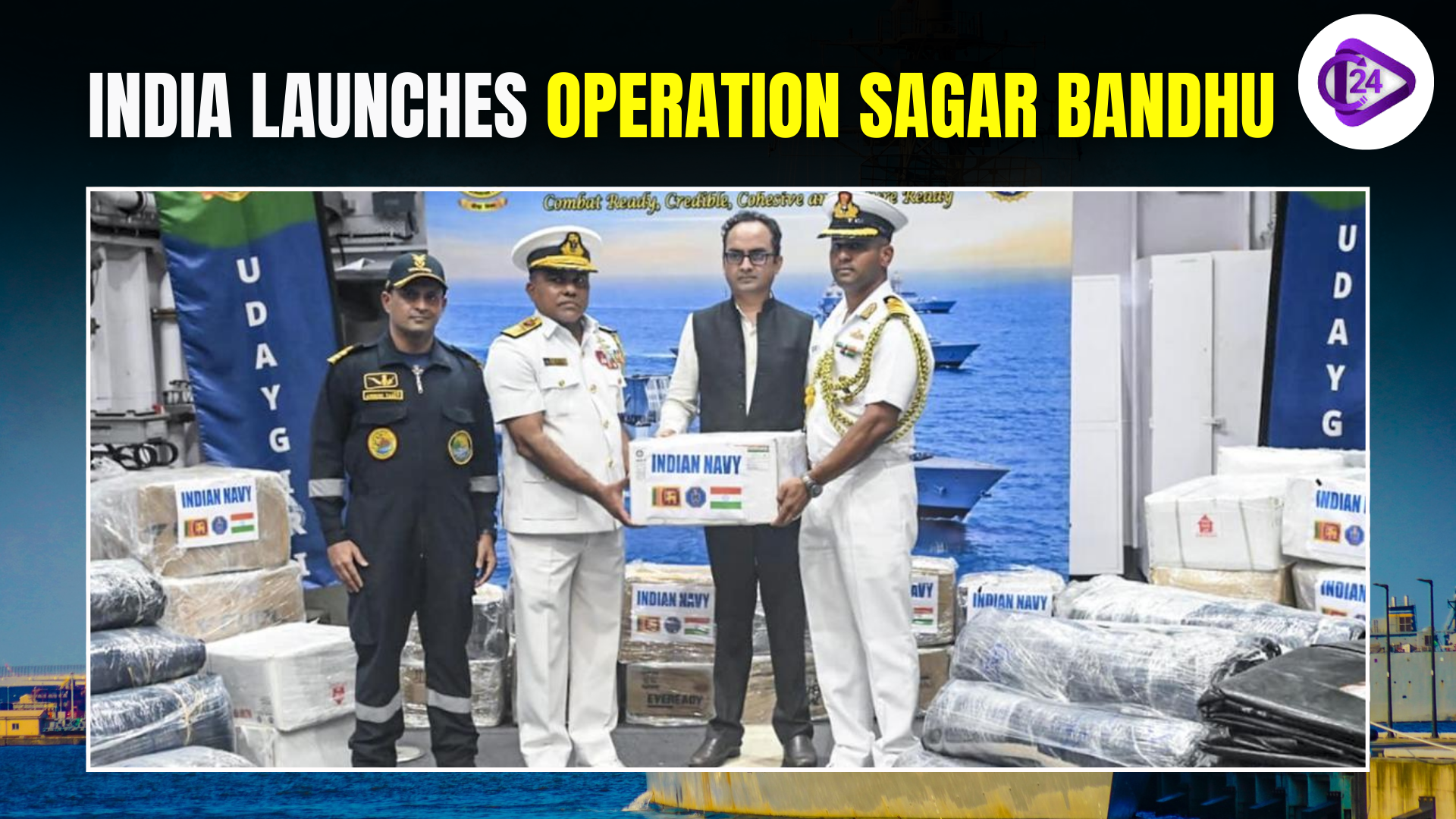 India Launches Operation Sagar Bandhu to Support Sri Lanka After Cyclone Ditwah
India Launches Operation Sagar Bandhu to Support Sri Lanka After Cyclone Ditwah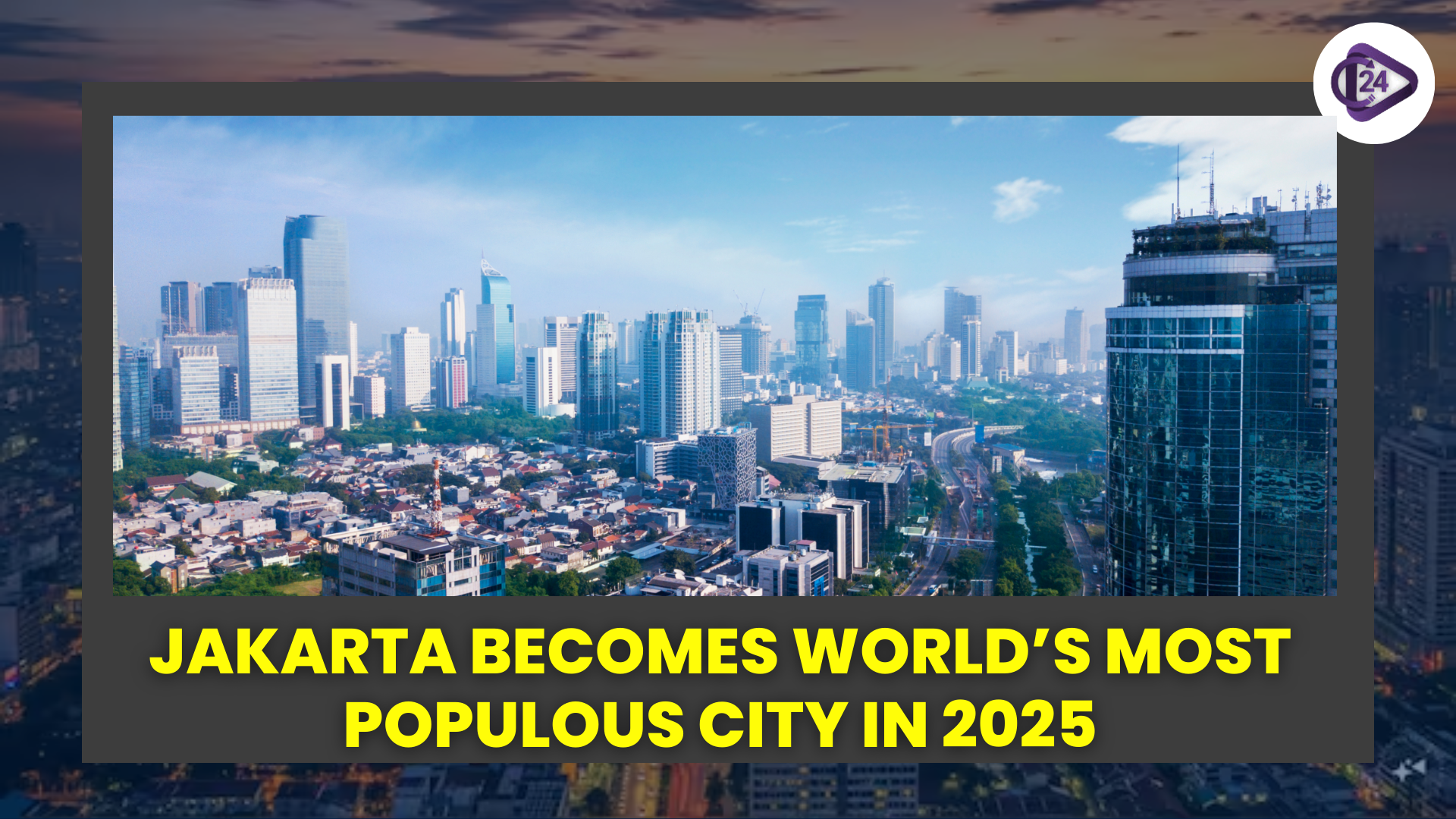 Jakarta Becomes World’s Most Populous City In 2025
Jakarta Becomes World’s Most Populous City In 2025






